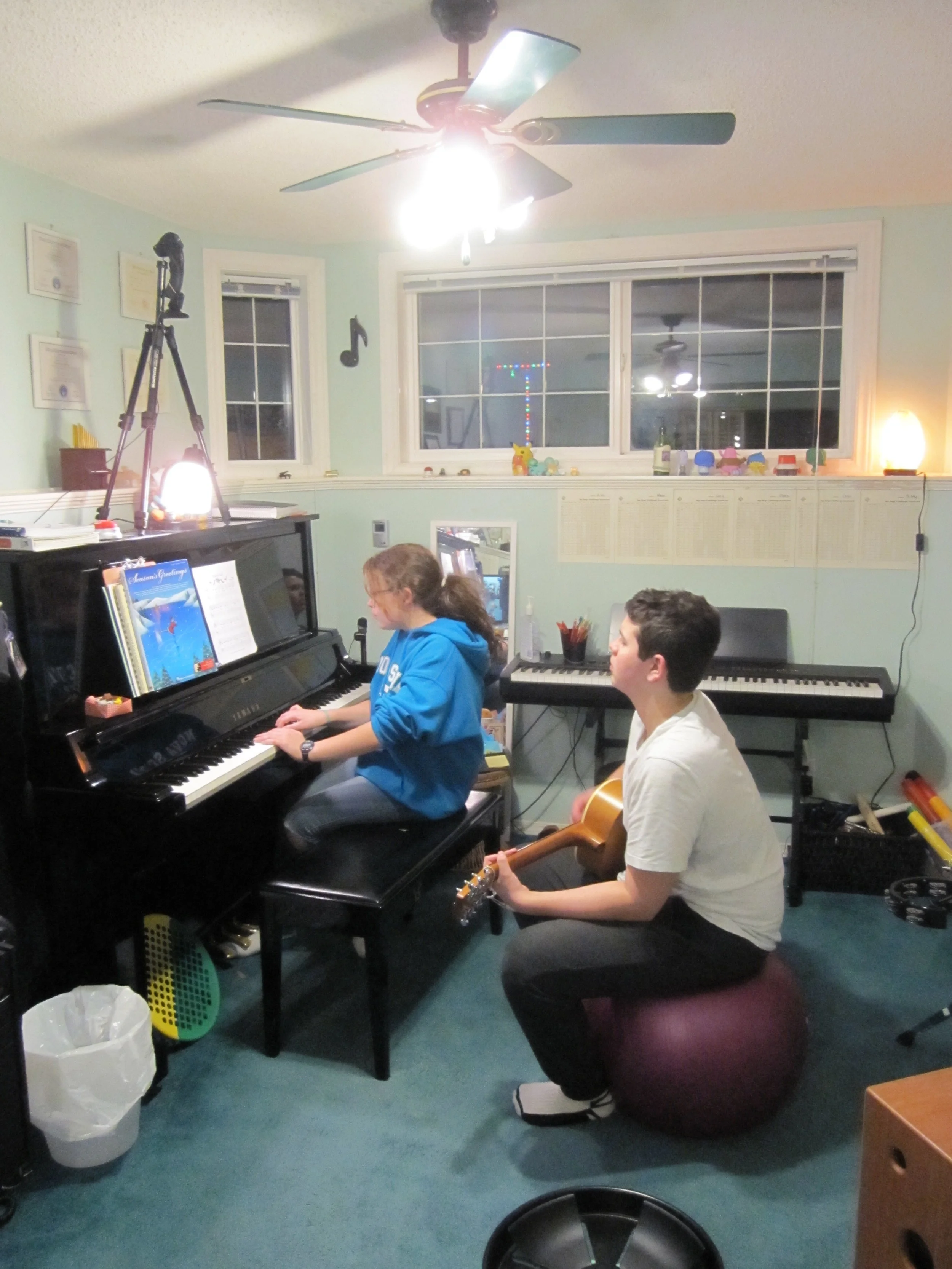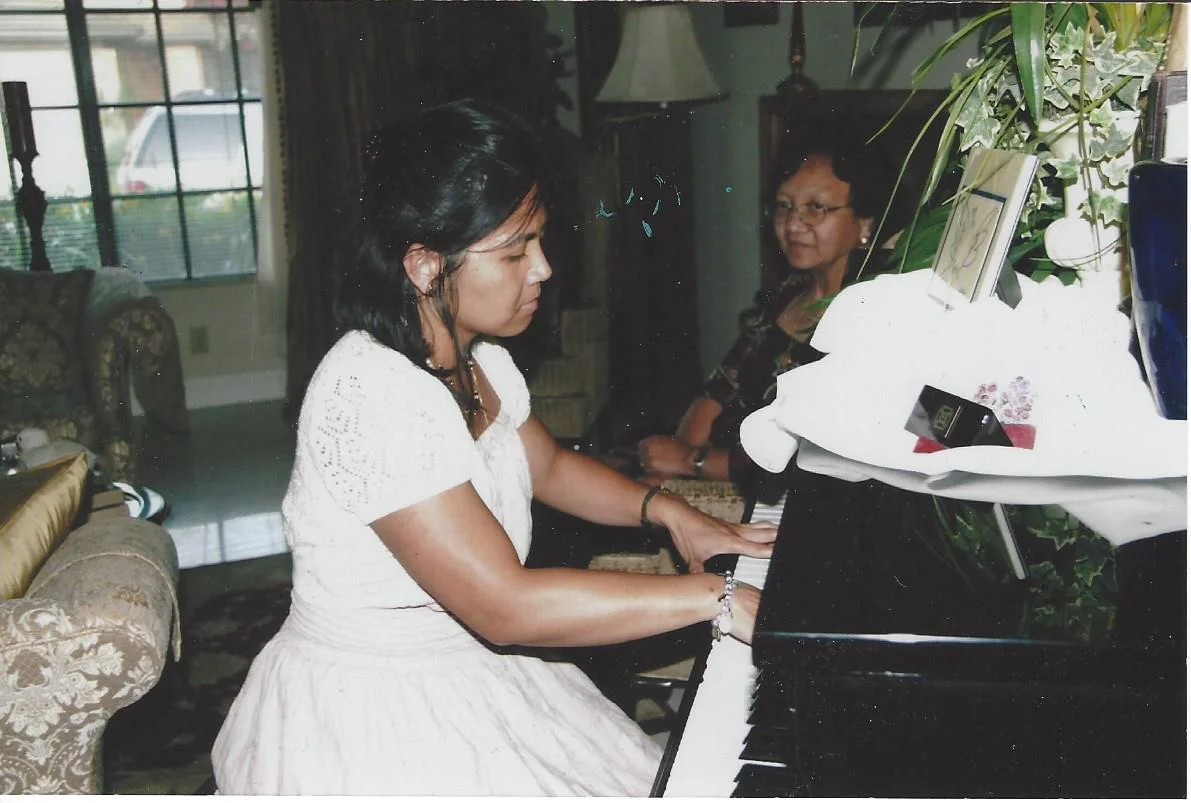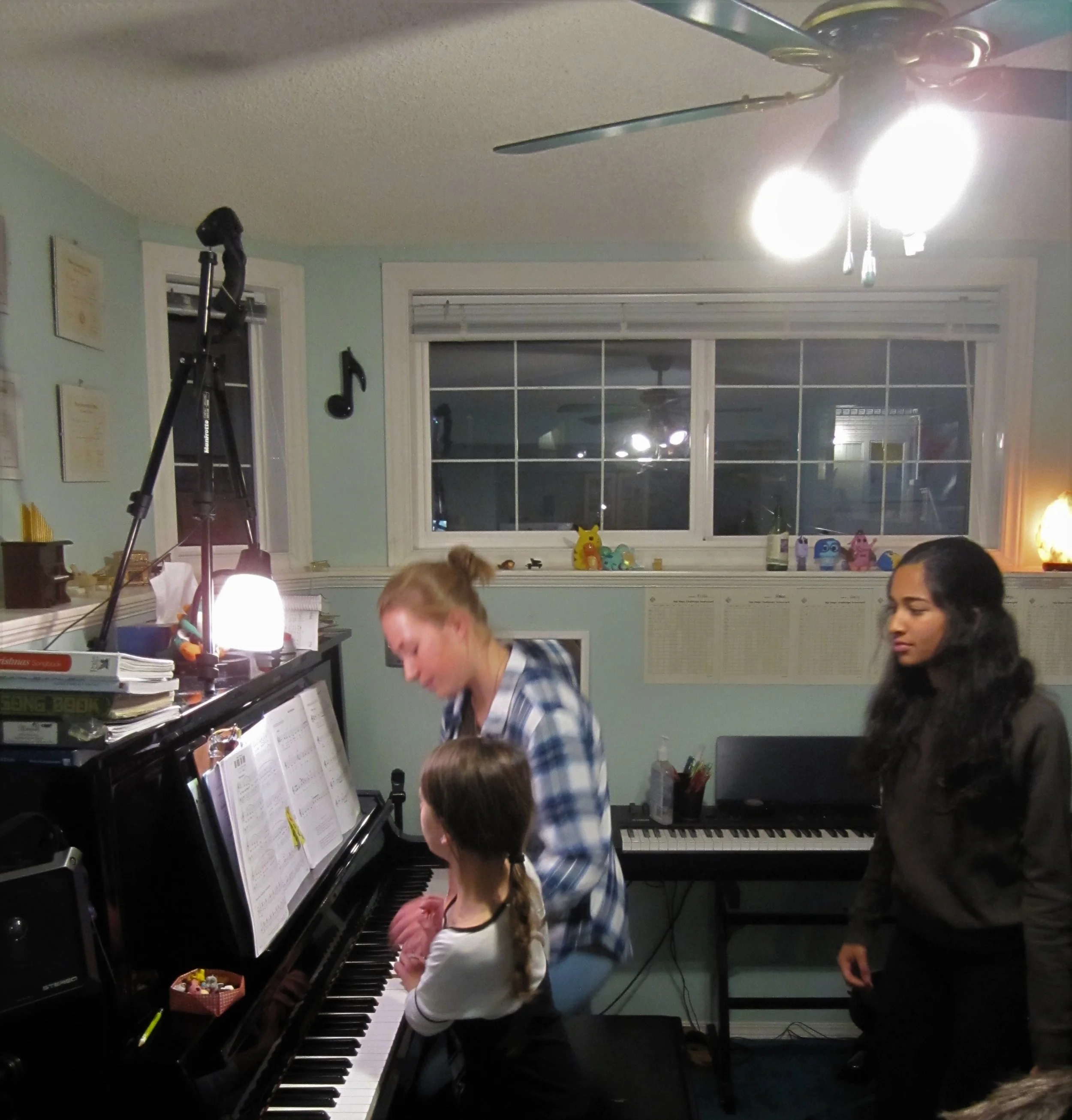This year, I decided to bring back Group Class Week at my piano studio. My reasoning was three-fold: First, my students love getting together. Second, there are also concepts that are best taught in a group class setting. Finally, with juggling multiple jobs as well as my studio, I needed to build in some time to catch up on studio administration and planning. Replacing regular lessons with one group class per teaching night gave me that much needed time to work and/or rest.
The focus for this month's group class was Bulletproofing Your Christmas Music. We explored likely scenarios one could face at a Christmas party, social or community setting, such as:
You have been asked to perform and you need to play for a longer amount of time than you are prepared for.
You have been asked to play something that you don't know (well).
You have been roped into playing during a Christmas Carol sing-along and the singers ask for a different key.
You get tossed in with other musicians and are asked to play as a group.
You want to show off something really cool.
Making Your Music Longer
Haley and Grayson brainstorming on ways to vary their Christmas music. Photo credit: Rhona-Mae Arca.
Anyone who has performed at church or a gig knows that sometimes, you need to adjust your playing time on the fly. If the piece is too long, you find a logical place to cut it. But what if you only have a handful of pieces prepared and you are "asked" to play for twice as long as you have pieces?
My students did some brainstorming and experimenting. Everything came down to the same theme: repeat the song and vary it somehow. Here's what they came up with:
Move the piece up or down an octave when you repeat it.
Add embellishments (ornaments) to the melody.
Improvise for a verse and then play it "normally" once again.
Alter the rhythm, articulation, dynamics, or tempo.
Vary the accompaniment.
Playing a Song that You Don't Know (Well)
My students have heard the story of when I was visiting relatives in California. We visited one house with a grand piano. Sure enough, I was asked to play a few songs. I went through my playlist and improvised, but they still wanted me to play. Reluctantly, I opened up the piano bench and began to sight-read kundiman (classic Filipino love songs), while my aunts and uncles sang along. I say "reluctantly" because I disliked sight-reading at the time.
Dragged to the piano to play and not allowed off until the aunts and uncles are happy - if it can happen to me, it can happen to you! Photo: Jun Ancheta.
Then, I had my students work on a Christmas song they weren't familiar with and we discussed different ways to cheat and fake their way through such a performance, based upon their current playing level. These are some of the ideas they came up with:
Play block chords instead of the scored accompaniment.
Play the melody only (for beginners).
Recruit someone else to play through the bass clef notes while you play the treble clef part.
Only play an excerpt of the piece.
Transposing Music on the Fly
Most classically trained music students are taught transposing in music theory. However, they are usually taught how to write out a transposed melody. In the real world, we should be able to transpose on sight at our instrument. Sure, we may be lucky enough to play on a digital piano with a transpose function, but what if there's only an acoustic piano? What if you're playing along with someone whose music is not in concert pitch?
We just glossed through this area as this is best taught one-on-one. However, we did discuss intervallic reading and chording.
Jamming on Christmas Music with Family and Friends
This was perhaps the hardest challenge for most of my students, depending upon what they were playing. The kids on hand percussion and the cajón were fine once I showed them a few rhythms to try. But most had a challenge splitting the piano part up. If someone is playing the melody on flute and the chords on guitar, then as the pianist, you get to explore playing off the page - which is not the norm for today's classical musician.
My beginners were fine with just playing with one hand. Most of my intermediate and advanced students fought with themselves a bit. The desire to play what's on the page was strong. As for my Conservatory Canada Contemporary Idioms students? Generally, it was a piece of cake for them.
Showing off at the Piano
The first thing that comes to mind when I think about showing off at the piano is the Video Game Pianist, Martin Leung, AKA the Blindfolded Pianist:
Other ways of showing off that my students and I discussed included: playing with our hands crossed, playing upside down, and kicking each other off the piano - without missing a beat.
We explored what I called the Jingle Bells Relay. One person began to play this popular Christmas song. Then, one by one, another student would come up to the piano and cut in. The transition had to be sorted out and completed without missing a beat. The ones who successfully did this communicated clearly when and where they would be cutting in. They also kept things consistent by cutting in from one side the piano and exiting off the other.
Oh, there were some fumbles, but hey! They're all learning experiences.
Carly, Claire, and Tanya show off the Jingle Bells Relay in action. Photo by Rhona-Mae Arca.
Over the next few lessons, I will reinforce the one or two group class activities that piqued their interest. I don't expect them to like everything they tried at last week's music group class. However, I do hope that the class opened their ears and minds up to new possibilities. And if they are dragged onto the piano this Christmas Break, at least they aren't going in blind. Forewarned is forearmed.




